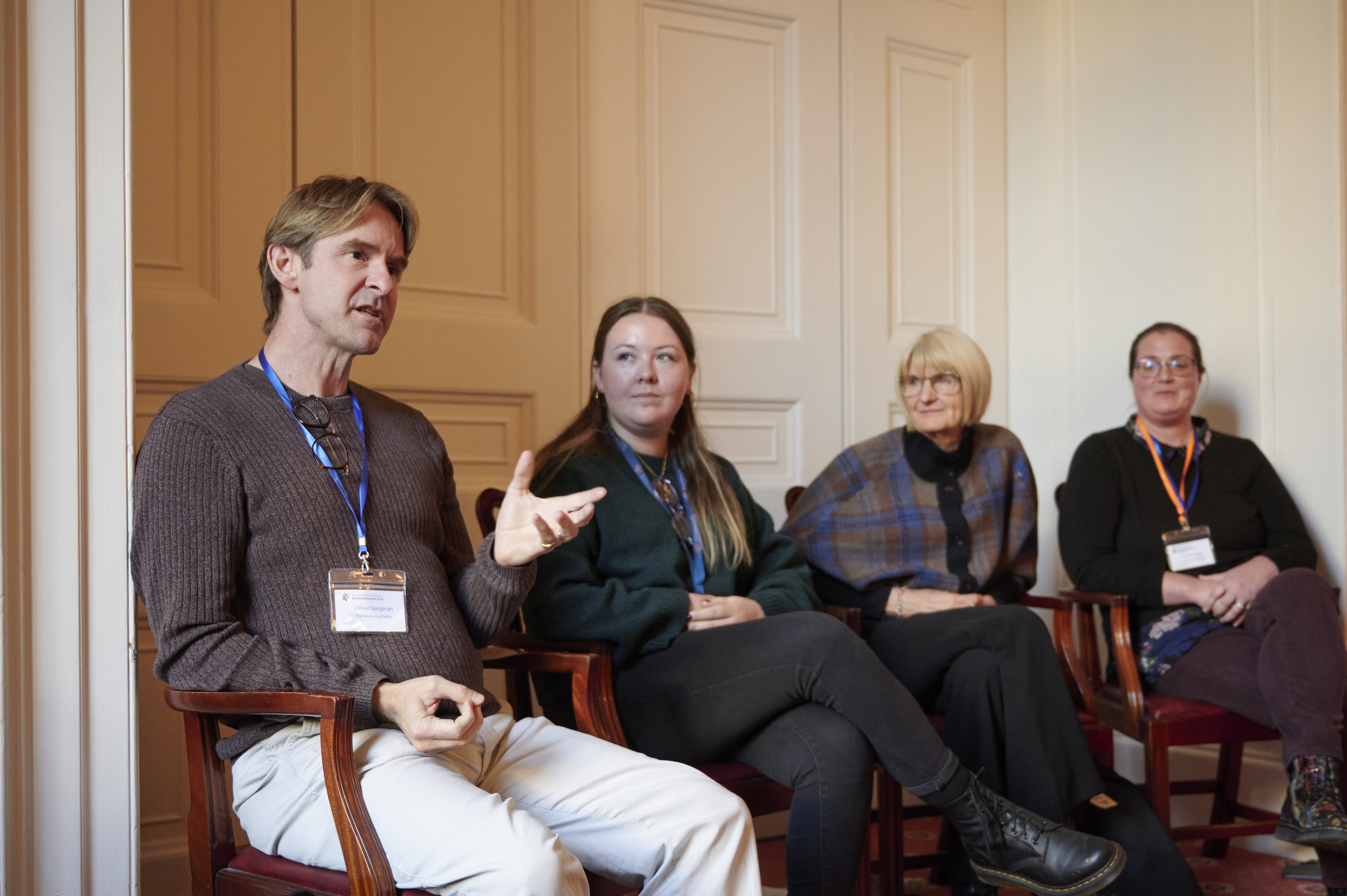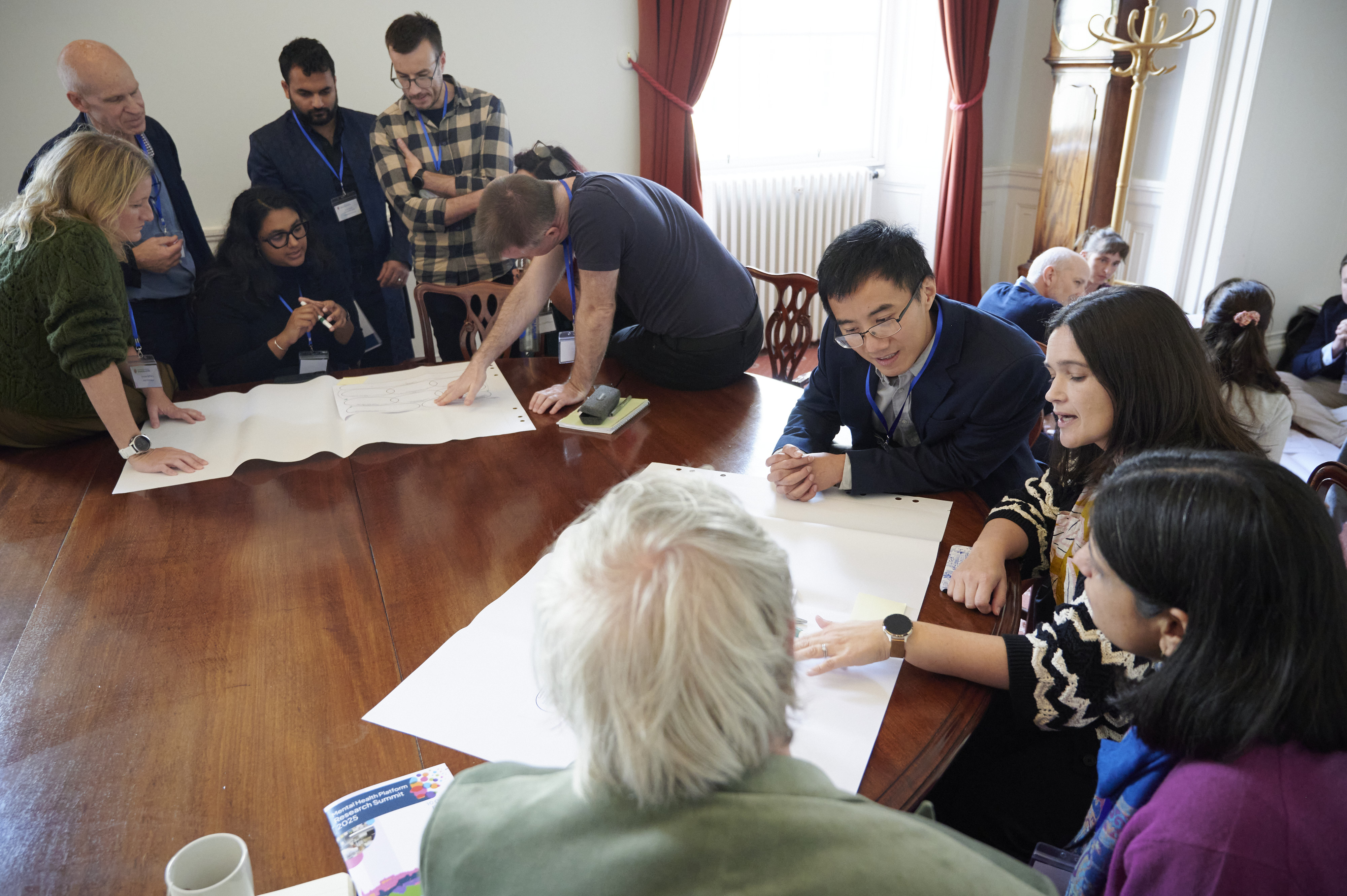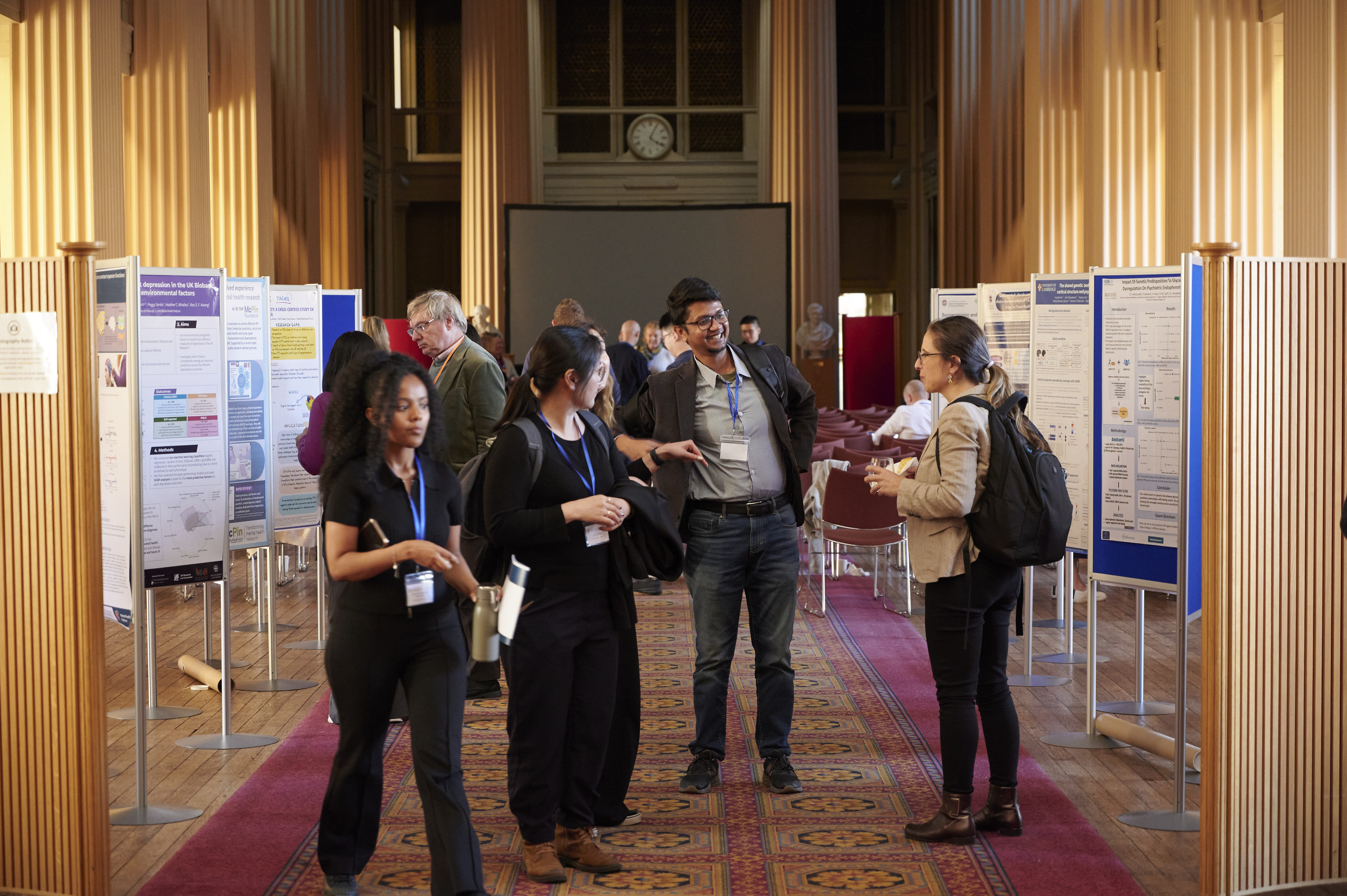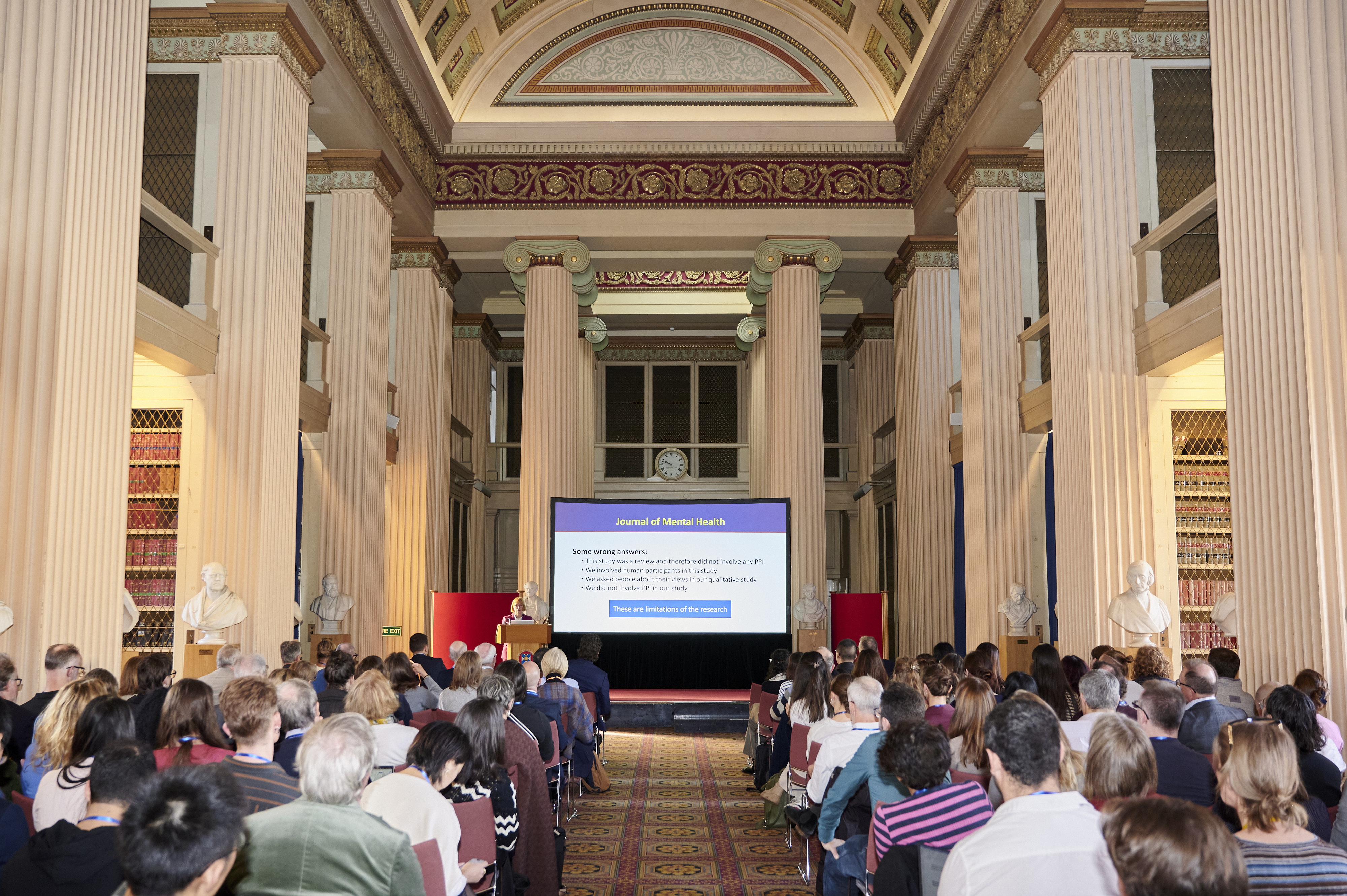
Author name:
Lowri Evans, PhD student
Institution name: Brain & Genomics
On World Mental Health Day, PhD student Lowri Evans joined other researchers, clinicians, students, and people with lived experience of severe mental illness at the Playfair Library Hall in Edinburgh for the Mental Health Platform Research Summit. We asked her what everyone was talking about at the event.
Acronyms: PPIE - Patient and Public Involvement and Engagement
If there was one theme which stood out to me at the Research Summit, it was definitely that lived experience isn't an addition to research – it's essential.
The day opened with an inspiring keynote from Professor Dame Til Wykes, whose words set the tone for the day. She highlighted the importance of true partnership between researchers and people with lived experience, reminding us collaboration isn’t a courtesy, but rather a necessity.
The Power of Lived Experience parallel session brought this into sharp focus for me. Panel members with lived experience spoke powerfully about what meaningful involvement really looks like. The message was clear – embedding people with lived experience shouldn’t be limited to consultation at the beginning or end of a project. It needs to happen at every stage - from research design to dissemination.

One theme that resonated throughout the discussion was accessibility. I came to see that making research accessible isn’t just about producing lay summaries – it’s about understanding who needs access to what information, and in what form. True accessibility allows people to engage, contribute, and see themselves reflected in the research process. It’s not only about making findings easy to read but about creating spaces where everyone can participate equally and meaningfully.
A practical demonstration of PPIE in action came during the Social and Emotional Health Hub breakout session I attended. Rather than presenting solutions, the workshop opened the floor to discussion. It invited researchers from different hubs and people with lived experience to actively shape their research agenda together.
We broke into smaller, mixed groups of different backgrounds and perspectives. Here, every voice, opinion, and experience carried equal weight. The session wasn't about extracting opinions from lived experience members while researchers took notes. It was a genuine co-production. Each perspective was recognised as essential in shaping research questions the Hub could explore through its data.
This kind of collaboration shifts the dynamic, moving away from researchers deciding what’s important and seeking feedback, toward a model where research priorities are shaped with the people whose lives the research aims to improve.

Perhaps the most significant hot topic wasn’t just about involving lived experience voices, it was about support and value. The lived experience panel members emphasised if we recognise lived experience as vital to research (which it is), we also have a responsibility to provide the infrastructure that enables meaningful participation.
Training and learning emerged as a key priority. Not all lived experience members involved in research come from academic backgrounds, and I understood that’s a strength. They can bring perspectives that academic training alone cannot provide. But we know navigating academic language and institutional systems can be challenging. We as researchers need to provide intentional support to make sure everyone has the tools they need to participate fully.
Ultimately this is about building a sustainable research community. One that doesn’t only invite lived experience, but nurtures and values it. When we invest in support, training, and accessibility, we're not just improving individual projects. We're creating a research culture where lived experience is embedded.
The Mental Health Platform Summit made it clear to me that PPIE and lived experience involvement aren't emerging trends – they're fundamental to how mental health research should be conducted. The hot topics of the day all pointed in the same direction - connection between researchers and lived experience communities, collaboration in shaping research priorities, and building the community infrastructure to sustain this work.


